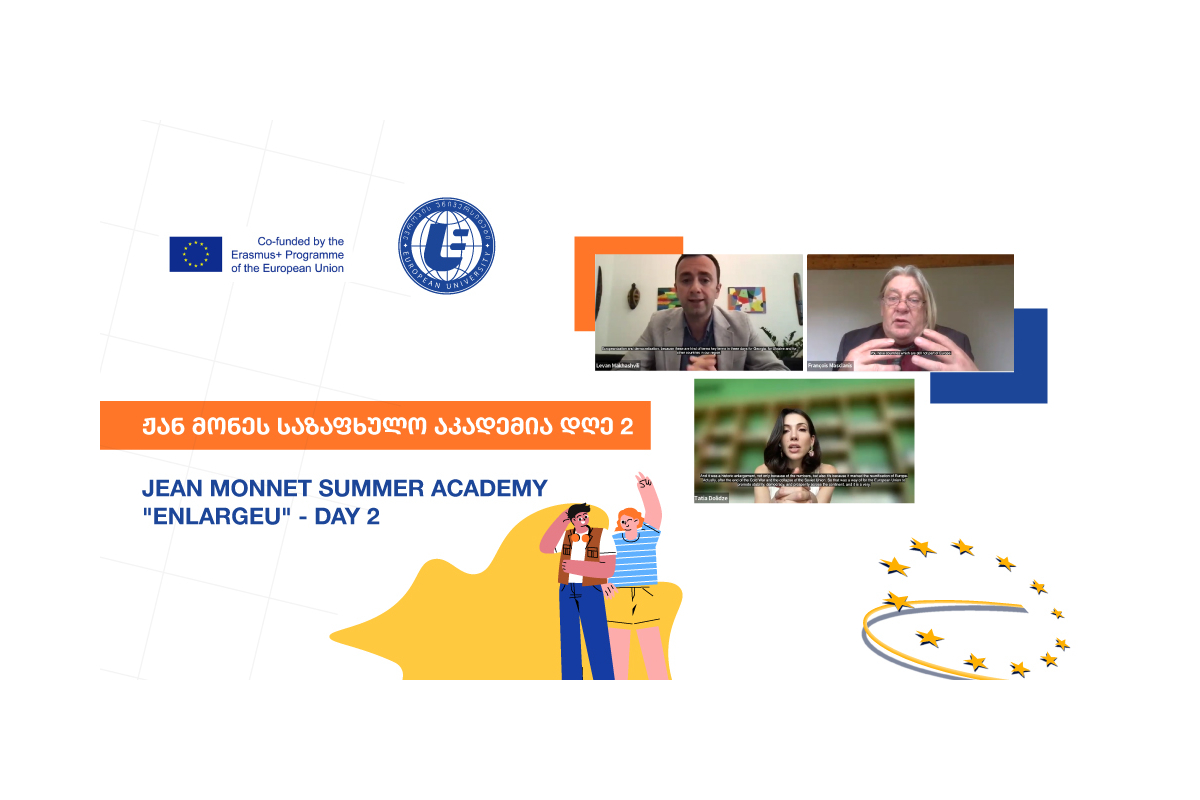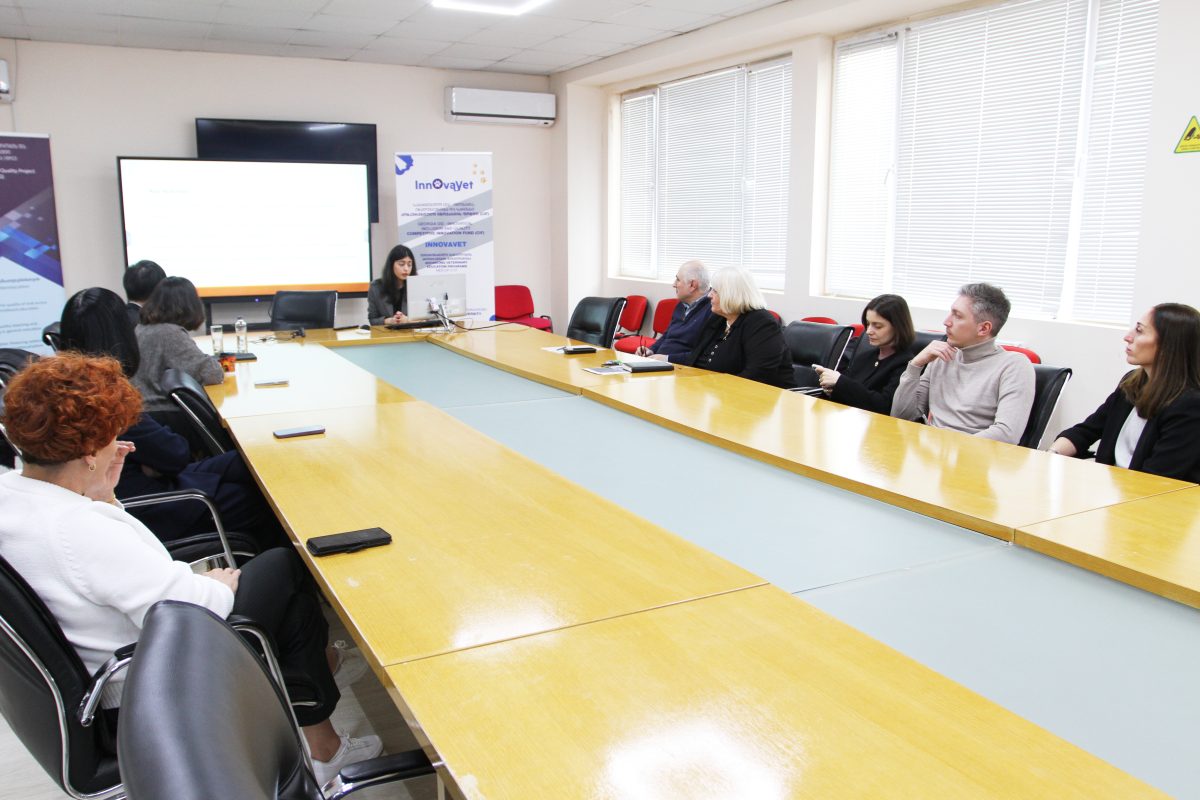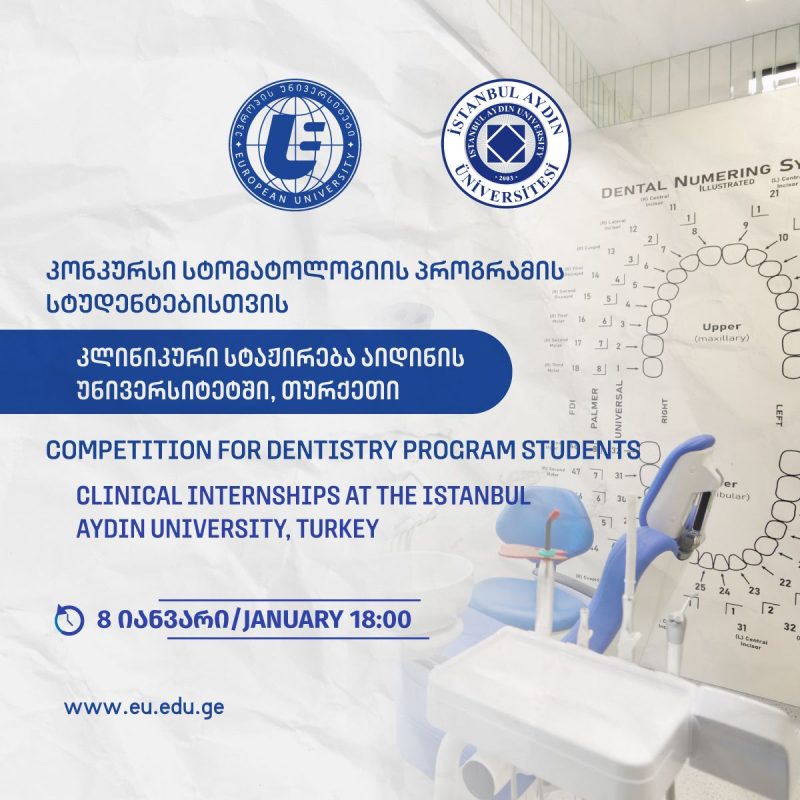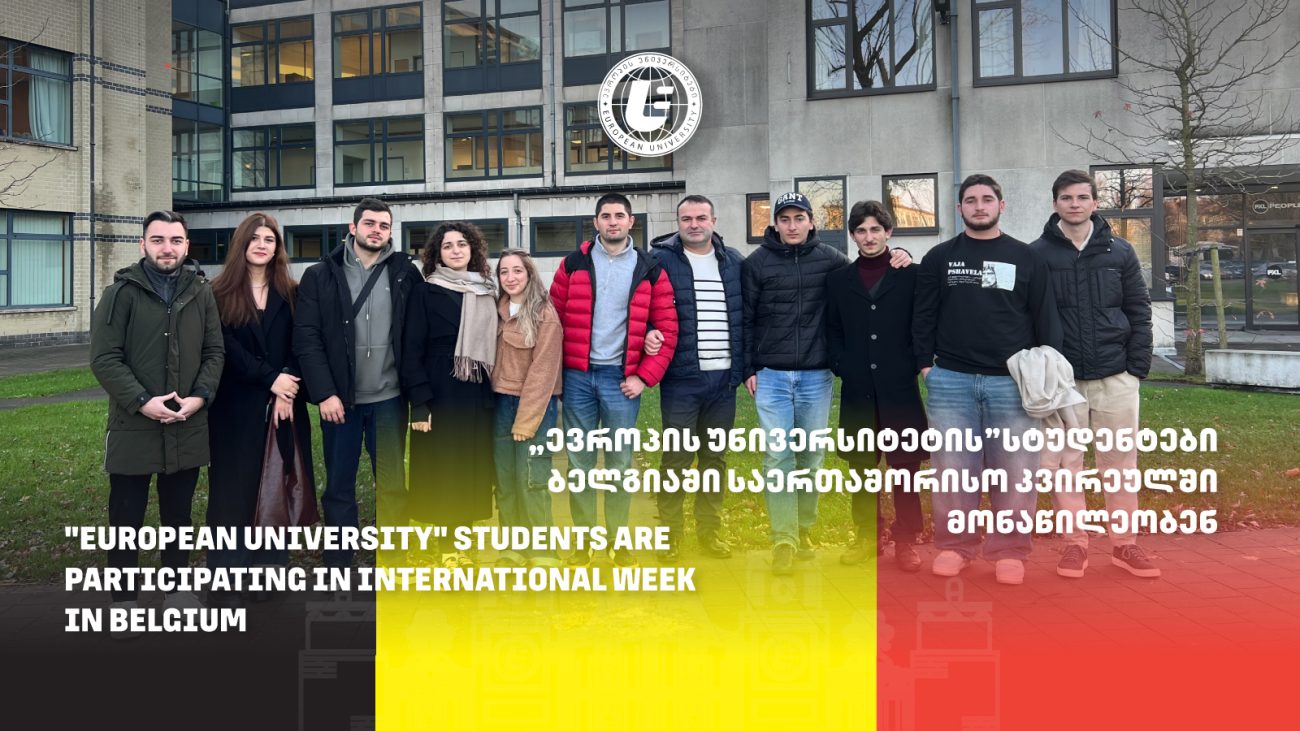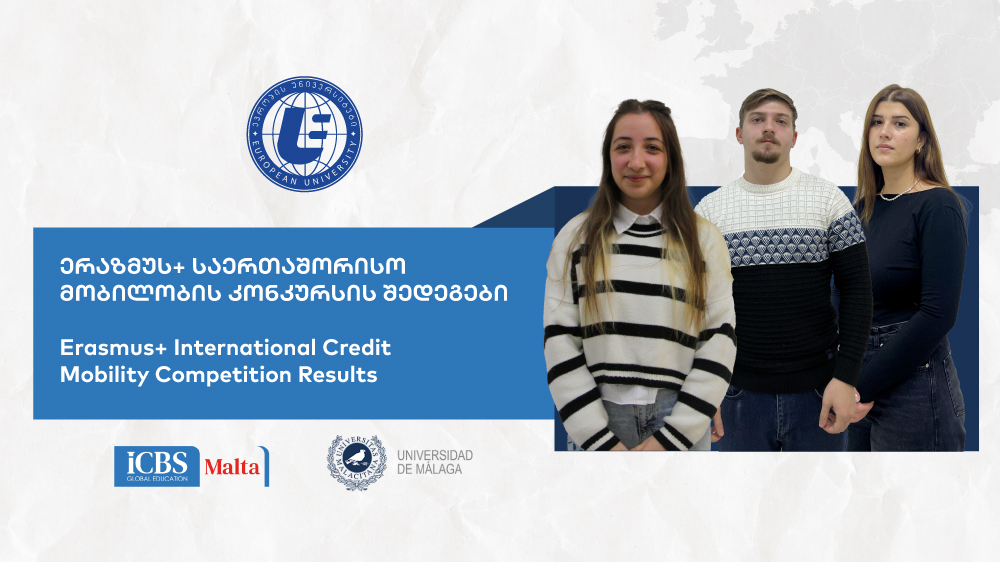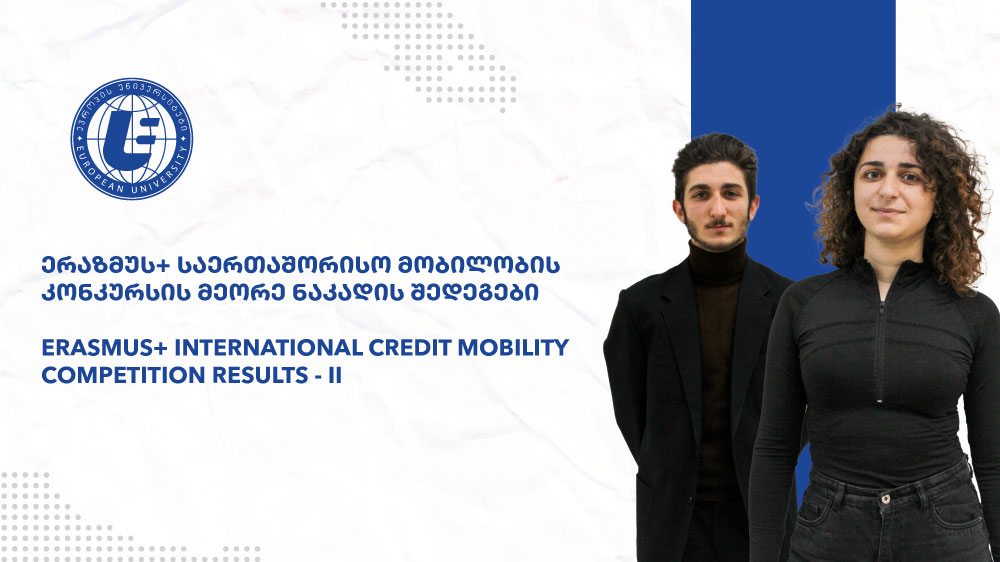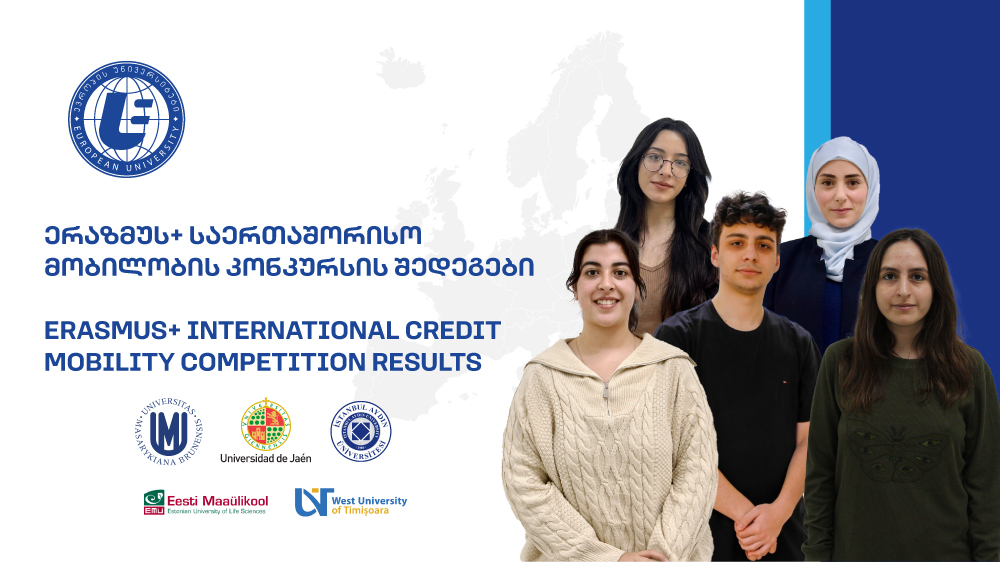The Jean Monnet Summer Academy continued its second day with a series of insightful discussions and lectures centered on the critical theme of European Union enlargement.
The day began with a thought-provoking lecture by Levan Makhashvili, Head of the Cabinet of the Chairman of Parliament at the Parliament of Georgia and Associate Professor at European University. Makhashvili guided participants through an exploration of the processes of Europeanization and democratization, focusing on the concept of Europe, its relevance to countries like Georgia and Ukraine, and the defining European values of democracy, equality, freedom, and peace. In his second lecture, Makhashvili addressed the achievements and challenges Georgia faces on its path toward Europeanization and democratization. He traced Georgia’s journey from its first independence in 1918, which laid the foundation for democratic governance, to its current standing in the European integration process.
The next speaker was Professor and Researcher in Economics and Geopolitics at ISG – Institut Supérieur de Gestion (Toulouse, France), François Masclanis. He provided a comprehensive cartographic analysis of Russia’s geopolitical strategies and their impact on EU enlargement. He addressed the complexities of defining Europe’s geopolitical boundaries in light of Russia’s territorial and ideological expansion. Masclanis underscored the importance of understanding Russia’s ambitions to effectively manage EU enlargement and avoid conflicts. In his second lecture, he discussed the challenges faced by countries like Georgia, which are caught between European aspirations and Russian influence, and reassured participants that EU membership would ultimately shield Georgia from external pressures
The day concluded with a lecture by Tatia Dolidze, who provided a detailed analysis of the EU’s expansion through case studies of its seven rounds of enlargement. She utilized two analytical frameworks—the logic of appropriateness and the logic of consequences—to explain the motivations of both the EU and aspiring member states in each round of enlargement. Building on concepts she had introduced earlier in the academy, Dolidze’s session illuminated the interplay between cultural-historical alignment, geopolitical strategic interests, and economic benefits that have driven the EU’s growth from a small coalition to a major political and economic union. Following her lecture, Dolidze engaged participants in a group activity to discuss Georgia’s aspirations to join the EU. The discussion focused on dual motivations: value-based considerations and cost-benefit analysis.
The Jean Monnet Summer Academy continues to provide an invaluable platform for exploring the pressing issues surrounding the European Union’s future and Georgia’s role within it.


